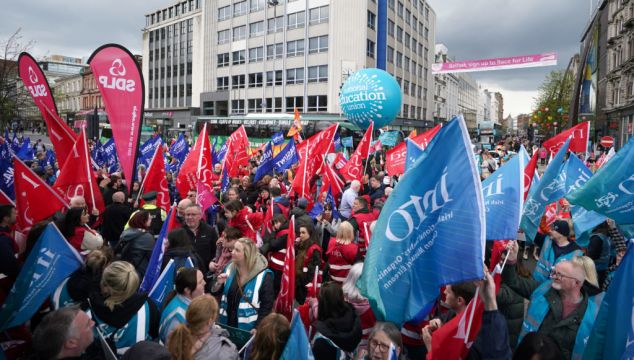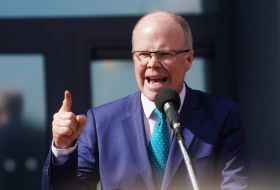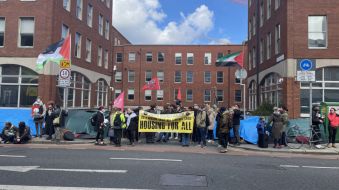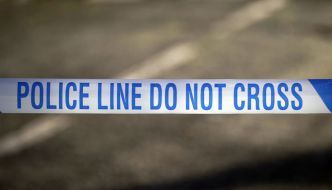Public sector workers across Northern Ireland will take part in a generalised day of strike action on Thursday – bringing many services in the region to a standstill.
Unions, politicians and Stormont departments have warned of severe disruption.
MLAs have been recalled to Stormont on Wednesday in an attempt to elect a new speaker and discuss the crisis.
– Why are workers going on strike?
Unions have been involved in long-running pay disputes, in some cases lasting for several years.
Workers are demanding that pay awards made to counterparts elsewhere in the UK are introduced in Northern Ireland.
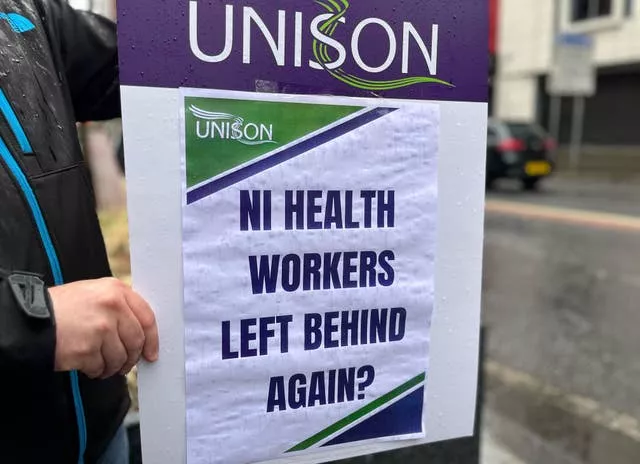
Workers in health, education, the civil service and public transport have taken part in strike action over the past 12 months, but Thursday will be the first time all of the industrial action has been co-ordinated on a single date.
– How has it come to this?
Setting public sector pay is a devolved issue in Northern Ireland. However, the Stormont power-sharing Assembly and executive has been dormant for almost two years.
Stormont departments are being run by senior civil servants and they have said that a budget set for the region by Northern Ireland Secretary Chris Heaton-Harris last year did not provide them with enough funds to offer pay awards to workers.
– What has been done to try to avoid the industrial action?
During his negotiations with the Stormont parties, Mr Heaton-Harris offered a £3.3 billion (€3.8 billion) package to stabilise finances in Northern Ireland, including £600 million to settle public sector pay claims.

However, the Government has insisted the package is dependent on a deal to restore Stormont.
The DUP, the largest unionist party, which collapsed the power-sharing institutions in protest at post-Brexit trading arrangements, has said the Government should divorce the issue of public sector pay from the wider financial offer and settle the workers’ claims immediately.
The other parties, while urging the DUP to return to Stormont, have also called for the Government to release the funds to public sector workers.
Mr Heaton-Harris has, however, insisted he does not have the power to intervene in what is a devolved issue.
– What has the head of the civil service said?
Jayne Brady, head of the Northern Ireland Civil Service, has written to Mr Heaton-Harris calling for funding urgently to be released to stop Thursday’s strike action.

Her letter said: “You have publicly stated that the UK Government cannot, and will not, stand by and allow public services and finances to decline further.
“This Thursday will represent the single biggest day of industrial action in a generation, reflecting the strength of feeling and deteriorating, and frankly untenable, position we are now in.”
– How many workers are taking part in the industrial action?
Fifteen trade unions representing 170,000 workers will be taking part. However, it is not clear how many members will be involved in the strikes.
– Which services will be disrupted?
Unions on strike represent workers right across the public sector in Northern Ireland so disruption is expected to be substantial.
In health, nurses, midwives, ambulance staff and other workers will be involved.

Health chiefs have warned that disruption will be on a “massive and unprecedented scale”.
Minimum services, equivalent to those available on Christmas Day, will be offered.
The Department of Health has advised people to “take all sensible steps to reduce your chances of requiring health service treatment on the day”.
Schools across Northern Ireland are expected to be closed as all the main teaching unions and other education staff will be on strike.
Public transport will not be running.
Normal road gritting services will not be carried out, with the Department for Infrastructure advising people to avoid all but necessary travel on Thursday.
MOT services, emergency flood response and road repair services will also be impacted.

While officers from the Police Service of Northern Ireland (PSNI) will not be on strike, civilian police staff in participating unions will join the industrial action. There will be restricted services in courts.
Regarding social security benefits, the Department for Communities has said it is working to ensure that payments will be made on Thursday.
Those in receipt of jobseeker’s allowance are excused from signing on on Thursday and it is advised that customers may experience delays in telephone and online services.
– What else will happen on Thursday?
Unions have called on the public to support their industrial action. A series of marches and parades are planned for locations across Northern Ireland. Unions have said they expect tens of thousands of people to take part.
– Are there other concerns?
Northern Ireland is currently in the grip of severe winter weather with ice and snow already causing travel and schools disruption.
A normal road gritting service is not expected to resume for seven days from midnight on Wednesday as members of the Unite and GMB unions are involved in week-long industrial action.

Hospitals are already struggling to deal with the impacts of winter pressures, which will be exacerbated by the postponement of routine surgeries due to the strike action.
– Will Thursday be the end of the matter?
No. Unions have said they will continue with industrial action until the outstanding pay claims are settled.
– Will there be action beyond strikes?
Nipsa, one of the largest unions in Northern Ireland, has called for a campaign of “civil disobedience” to protect public services in Northern Ireland. It has been suggested this could involve blocking roads and occupying buildings.
The other participating unions have not echoed this call.
The Police Federation for Northern Ireland, which represents rank-and-file PSNI officers, has called on striking workers to act in a “proportionate and lawful manner”.
